Maverick Citizen: Photo essay
Communities in Malawi demand changes to how US spends HIV money
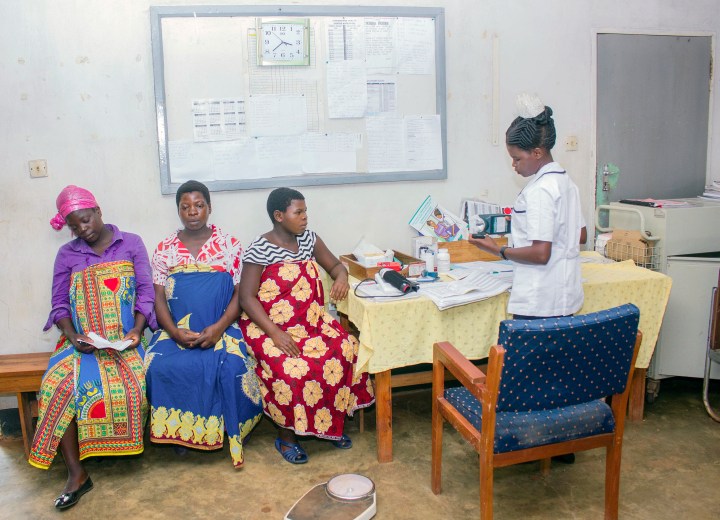
More than one million people are living with HIV in Malawi — with about 75% of those currently taking lifesaving antiretroviral treatment. But worryingly, Malawi faces ongoing challenges with retention, threatening the HIV response.
Community monitoring of 12 health centres in Malawi during January 2020 revealed increased numbers of people living with HIV not returning to the facility to collect treatment in eight of those sites by the end of 2019. For example, Manyamula Health Centre in Mzimba recorded 162 people who had been lost to follow-up out of 606 on treatment at the site, while Nangalamu Health Centre in Mangochi recorded about 330 people lost to follow-up against 1,073 on treatment at the site.
What is driving this troubling reality? There are not enough healthcare facilities — many people living with HIV report having to travel extremely long distances over bad terrain, with some having to cross rivers to reach the nearest clinic — and existing clinics are understaffed so that healthcare workers can’t provide the level of care they want to offer. Healthcare workers say their time with people living with HIV is limited and they often aren’t able to give the information people need to successfully stay on treatment.
These and many other challenges are detailed in “Liu Lathu Mu COP20” — Chichewa for “Our Voice on COP20” — an advocacy document aimed at influencing PEPFAR (the United States President’s Emergency Plan For AIDS Relief) as it determines how it will spend millions of dollars on HIV and TB programmes in Malawi through its Country Operational Plan (COP) for 2020.
Liu Lathu doesn’t just focus on the existing problems, however. It also clearly outlines a number of community-recommended interventions that would improve the state of the national HIV and TB response, including measures to help people to start and stay on treatment.
Increasing the number of healthcare workers would reduce long waiting times and improve overall quality of care. Funding the rollout of widespread and community-led treatment literacy education, increasing people’s knowledge about the importance of adherence, would help keep more people taking their daily pills.
Improving healthcare worker attitudes towards people living with HIV, young people and key populations would ensure they feel supported instead of belittled and discriminated against at health centres. Scaling up community adherence clubs will allow people to collect HIV treatment closer to home — and youth and key population-specific clubs and groups will help marginalised and often discriminated-against people get the treatment and retention support they need.
Two people involved in fighting for these critical changes, Chimwemwe and Alinafe*, are sharing their stories and their prescriptions for change in order to show PEPFAR, and the government of Malawi, what it means to interact with the current, failing healthcare system, and why the changes activists are demanding in COP20 are urgently needed.
Chimwemwe
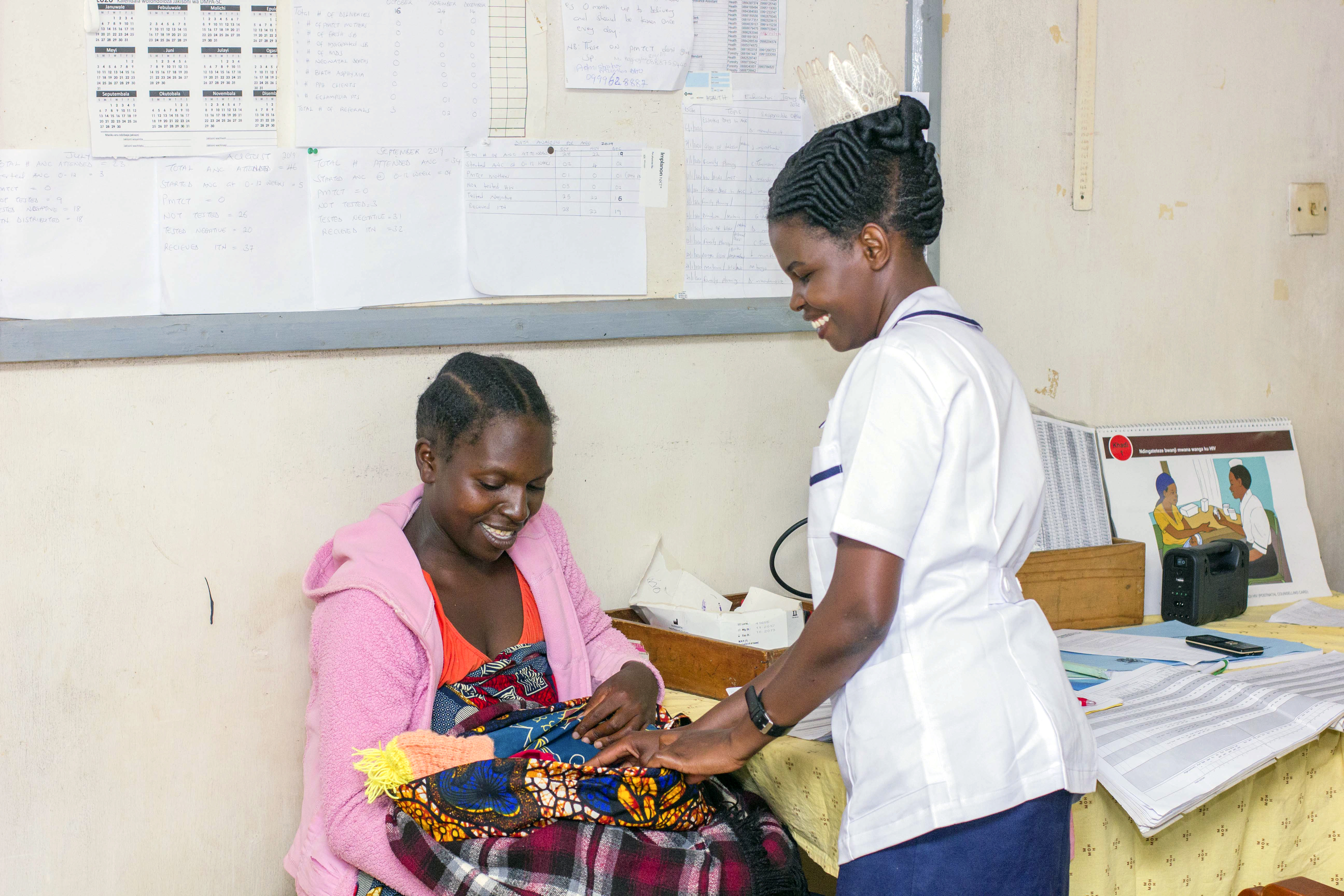
Chimwemwe is a healthcare worker from Chikangawa. She is committed to helping the community but the reality is that at the health centre she works at, Chimwemwe and the other staff are “overworked and overburdened.”
(Photo Lameck Luhanga, Moving Minds Multimedia)

Staff shortages detrimentally impact the quality of services people living with HIV receive. “Too few staff make the queues too long.” According to Chimwemwe, many people living with HIV stop taking their HIV treatment due to the long waiting times at the facility. Coupled with long distances to get to the facility, this only worsens the situation with people living. .The health centre fails to trace them because there are no expert clients or community health workers attached to the site. The distances to people’s homes are very long and so the nurses are unable to provide assistance in finding them. To worsen matters, many people living with HIV are staying in temporary residences, so it is difficult to trace them — “There used to be expert clients, but there are none anymore.” (Photo Lameck Luhanga, Moving Minds Multimedia)
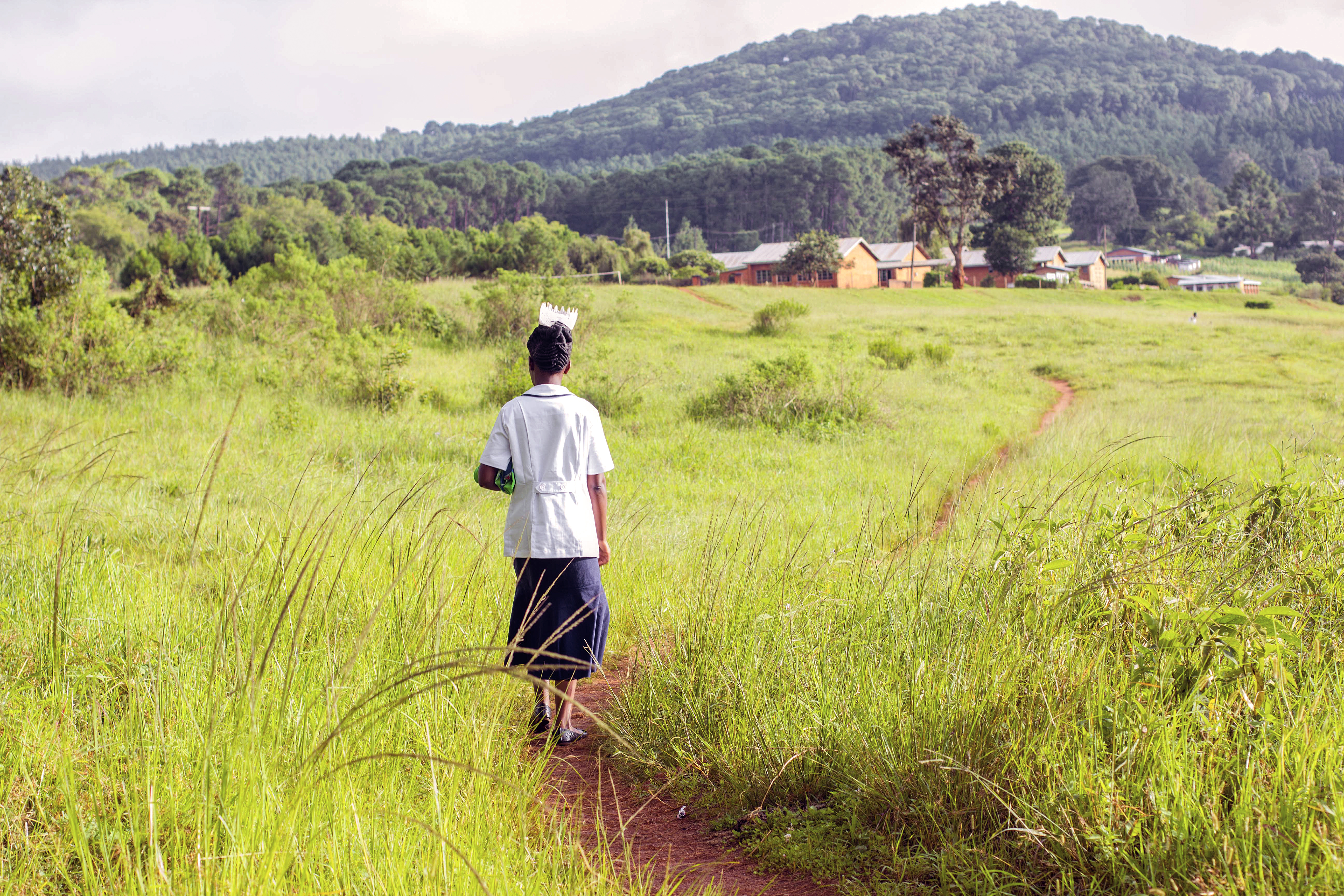
At Chikangawa health centre this is made worse by the infrastructural challenges. There is not enough space at the facility. It is overcrowded and some people living with HIV are forced to wait outside to be seen on allocated days, something that causes them to feel stigmatised and discriminated against as their HIV status’ are disclosed.
( Photo Lameck Luhanga, Moving Minds Multimedia)
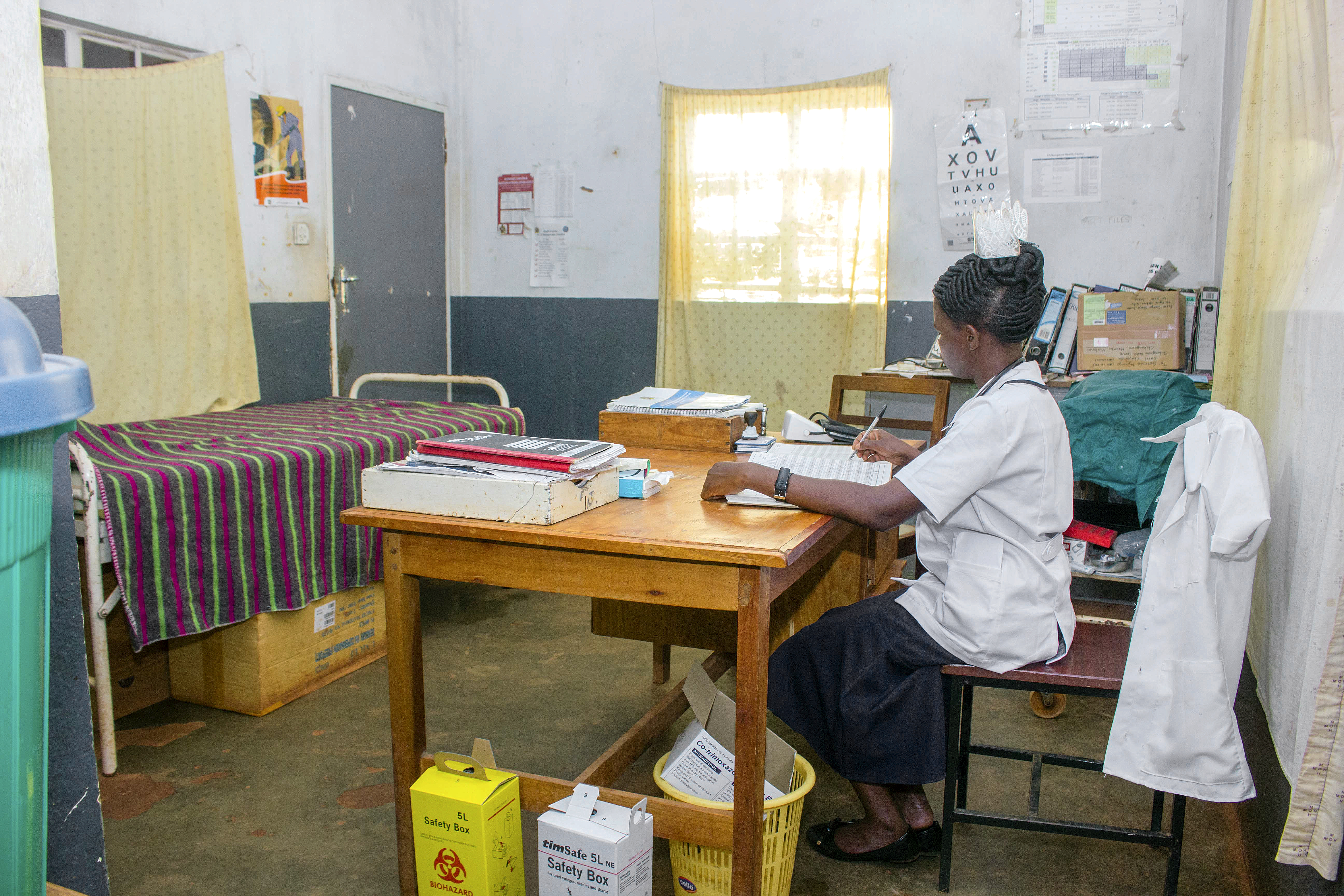
The health centre is split across two buildings, 3 km apart. Patients have to queue one side to see a nurse, and then go to the other side to get to the dispensary. This is a major burden for both patients and healthcare workers. The three nurses have to run between sites in order to offer services. At night there is only one nurse on duty, covering both sites. While advances in ways to prevent and treat HIV continue to emerge, at times little of this information flows to healthcare workers at the frontline of the HIV response. “I was amazed when I heard the word PrEP for the first time the other day. I need to know it so I can ensure my patients can have safe sex. I have also been asked about differentiated service delivery models like fast track and community adherence clubs, and I didn’t know what those were. We have not been trained on it. When there is new knowledge they don’t consider us. No one tells us.” (Photo Lameck Luhanga, Moving Minds Multimedia)
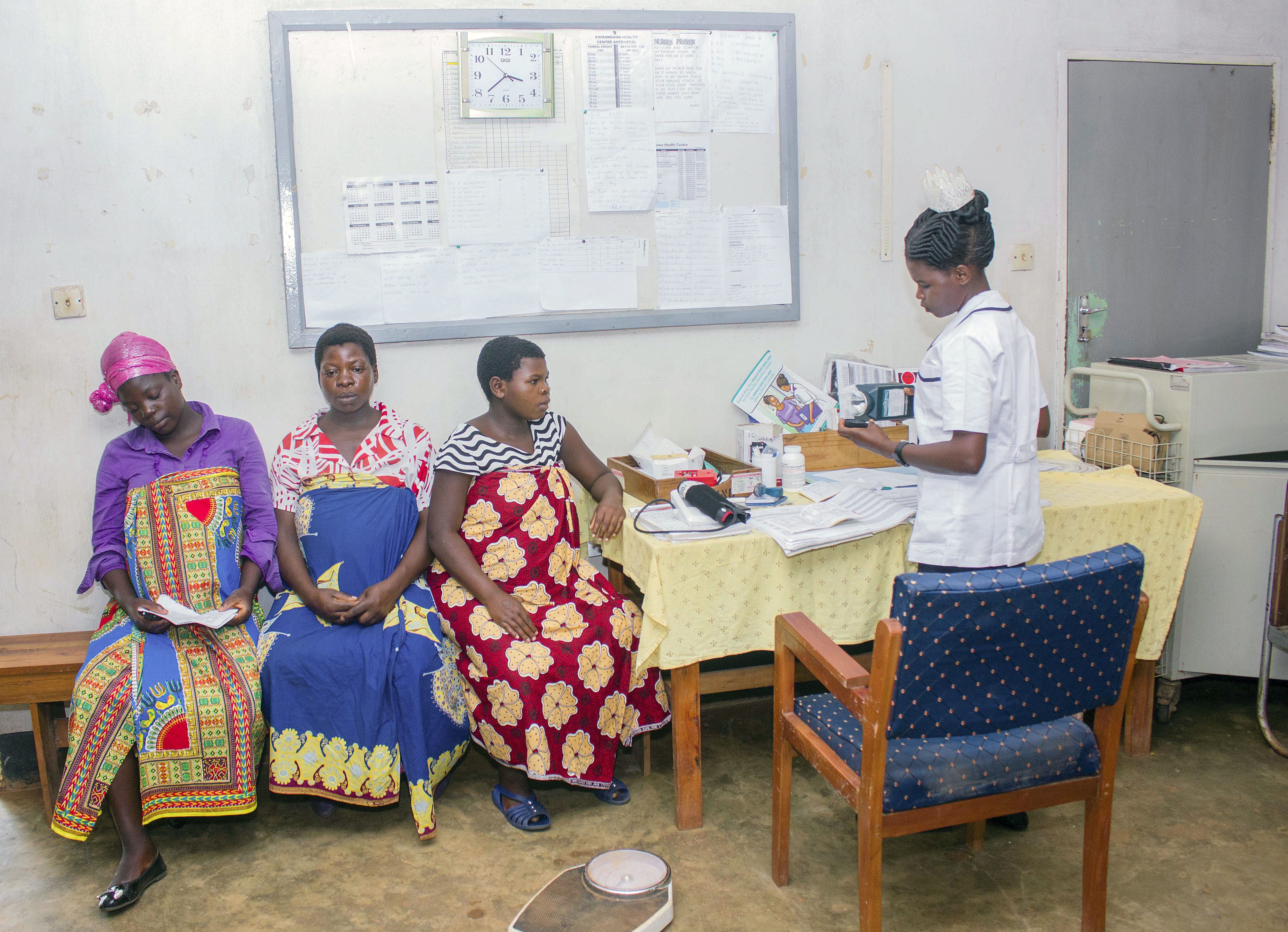
Another challenge is that none of the healthcare workers at this facility are trained to screen women for cervical cancer — meaning women fail to get timely diagnosis which could save their lives. Chimwemwe raised these concerns at a community meeting, presenting the recommendations of Liu Lathu in February, where civil society and communities pushed the government and PEPFAR to make the changes needed to fix these challenges. Talking from her experience, Chimwemwe pushed PEPFAR to fund more healthcare workers to ease the burden on the health centre, and give them more time to provide quality HIV and TB services to those in need. She urged decisionmakers to fund widespread treatment literacy, both to educate patients and healthcare workers who need to pass that information on at the facility. (Photo Lameck Luhanga, Moving Minds Multimedia)
Alinafe
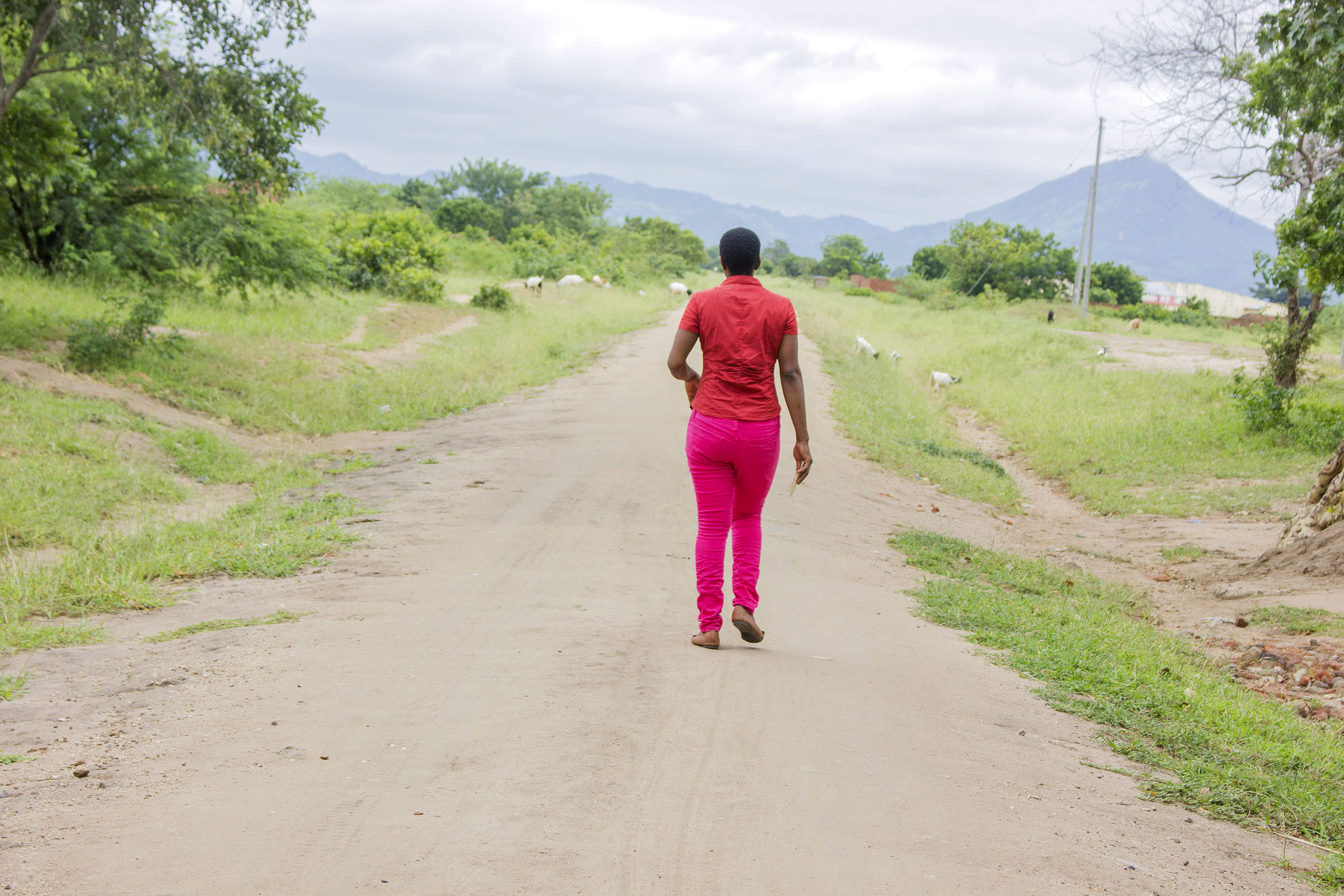
Alinafe is a sex worker from Nsange who is living with HIV. She lives in a remote community bordering Mozambique that is 15 km away from the nearest health centre. Frequent flooding during the rainy season means sometimes Alinafe cannot cross the rivers to get to the health centre to pick up her HIV treatment or condoms and other contraceptives. As a sex worker, often the healthcare workers do not treat her with dignity or respect. When sex workers try to access HIV treatment, contraceptives or STI treatment, the healthcare workers will say: “I am not the one who infected you, so why bother me?” This drives away many from seeking prevention and treatment. (Photo Lameck Luhanga, Moving Minds Multimedia)
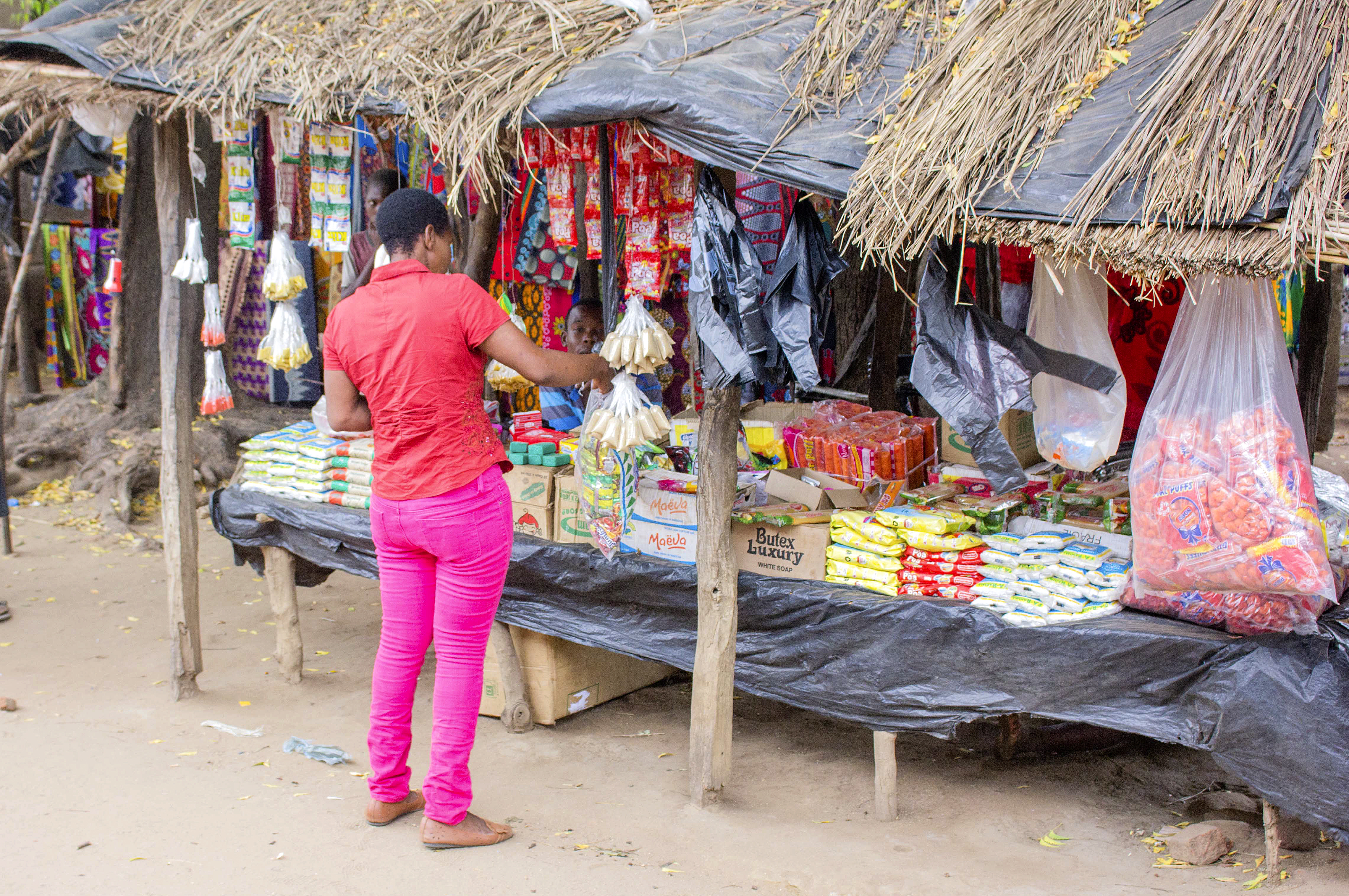
A few years ago an international NGO built an outreach health facility in Alinafe’s community and provided services there on a monthly basis using a differentiated service delivery model. They hired and trained peer educators to support local sex workers, adolescent girls, and young women. Alinafe became an outreach worker in order to bring HIV treatment awareness to other female sex workers. But the NGO will stop working in the district and PEPFAR does not support healthcare services there, either. The nearest health centre is too far, transportation there is too costly, and discrimination from healthcare workers makes it so that most sex workers cannot access treatment. Many are disengaging from care altogether.
( Photo Lameck Luhanga, Moving Minds Multimedia)

Commodities like condoms and lubricant are also impossible to access now, and no one at the health centre is trained to do cervical cancer screening. Sex workers also face many safety issues. Two sex workers recently died due to cervical cancer, and one was killed by a client. Alinafe is no longer employed by the NGO as they wind down services, but she continues to help girls and women in her community. She also works with other activists to bring attention to the current situation in her community and to demand changes from government and PEPFAR. Alongside Chimwemwe, in February, in front of PEPFAR and government officials, Alinafe urged PEPFAR to expand into Nsanje district now that the NGO is leaving. She further urged those in power to ensure healthcare workers are sensitised to provide services friendly to key populations such as sex workers, encouraging rather than alienating them from accessing the HIV prevention and treatment services they need. (Photo Lameck Luhanga, Moving Minds Multimedia)
*Name has been changed to protect her identity MC
David Kamkwamba is the executive director of the Network of Journalists Living with HIV (JONEHA) and the Chairperson of the Civil Society Advocacy Forum, a collective of civil society and community groups working on HIV in Malawi. JONEHA is leading a joint civil society campaign in holding PEPFAR accountable to the people. Lotti Rutter is an associate director of international policy at Health GAP.














 Become an Insider
Become an Insider